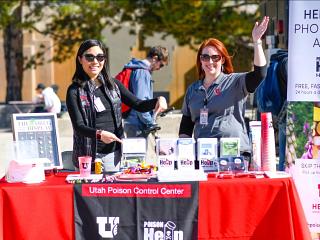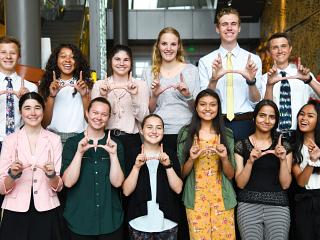
Keeping Patients Safe
Founded in the wake of World War II, the University of Utah College of Pharmacy (CoP) continues to define the cutting edge of research in the discovery, development, and delivery of new drug therapies. Of the 130+ pharmacy schools in the United States, the College of Pharmacy has consistently ranked in the top 10 based on National Institute of Health research funding.

The only problem, says Karen Gunning, PharmD, associate dean for community engagement? CoP faculty remain rooted in a culture of humility. “We don’t boast about ourselves and what we do,” Gunning says. “We are making a huge impact, but we are shy!”
The College of Pharmacy has plenty to boast about in research, education, and community engagement. For example, the Anticonvulsant Drug Discovery Center has screened every commercially available anticonvulsant approved by the FDA to ensure its safety and efficacy for patients.
Since 1954, the Utah Poison Control Center has served as an incredible resource to the state by helping to prevent and minimize adverse health effects from poison exposure. Its 24-hour emergency telephone service (1-800-222-1222) handles tens of thousands of calls each year. Since March, it has also provided information to the state’s COVID-19 hotline.
“The center is continually refining and measuring its impact so it can better serve the community,” Gunning says. “It also provides our students with once-in-a-lifetime opportunities to learn alongside experts in toxicology. After graduation, many of our students seek further toxicology training because of these opportunities.”
Another area of community focus is immunizations. CoP became one of the first pharmacy schools in the nation to teach students how to administer immunizations while volunteering in free clinics and organizing drives in rural communities.
“This is particularly important,” Gunning says, “as we anticipate the need for vast numbers of health care professionals to administer COVID-19 vaccines when they become available.”
Pharmacy student volunteers are an integral part of the interprofessional teams at the free Midvale and Maliheh clinics, which provide free medical services for uninsured and low-income individuals and families on a weekly basis. They also provide education to high-risk patients about over-the-counter medication safety and prescription drug abuse prevention.
“Many of our students remain in Utah and serve as valuable resources for health care access and outcomes in their communities,” Gunning says.


